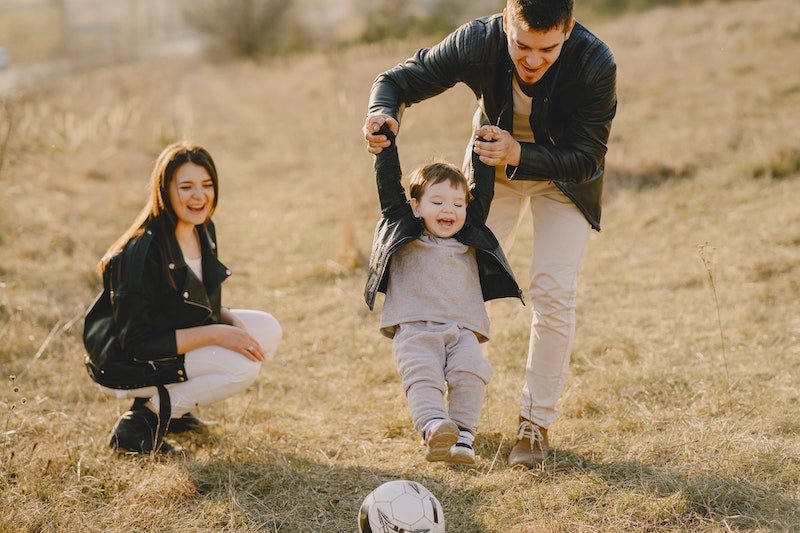As the future beckons, it promises lots of change. With all the distraction and overstimulation that devices bring, neuroscientist Maryanne Wolf is concerned children are not building up useful “reservoirs of knowledge” they can draw upon in coming years. Thinking, reflection and creativity are essential life skills but, she and other experts warn, these skills are under threat, so here are some ways through.
First up, don’t let this new generation’s legendary independence fool you. Today’s kids still need strong, focused adults to help them become highly skilled, face-to-face communicators—and to be resilient, practical, creative and flexible individuals. The 12 activities below will assist in creating experiences that are richly layered, helping your kids build a life of shared talk and experiences, of creativity and community.
The more kids communicate, learning to listen as well as to express themselves, and the more time they spend in real life, the more able they will be to navigate difficult people and tricky situations, and to make the best use of life’s easy and more challenging choices.
1. Take a fresh look at your “village”
What does your immediate “village” look like? Are your kids exposed to a mix of differing people and ages, or do you need to work on this? Take time to explain the characteristics of each individual in your group, and the specific needs this person has to make them feel comfortable. These cues help kids understand that everyone has their own way of being in the world, and the importance of accommodating others alongside their own needs.
2. Build strong social skills
Today’s kids need help to develop strong emotional intelligence—to “read” how others are feeling and to respond in a way that’s helpful. Prepare them on how best to handle new people they’re about to meet. If there’s a visitor, encourage them to do something to welcome that guest. Assist them in getting to know your neighbours and local shopkeepers, and teach them to greet these and other individuals in your “village” whenever they meet. These steps help develop the skills your kids need to build their own community as adults.
3. Work actively on hospitality skills
When you have guests over for a meal, weave your kids into the preparations by getting them to bake a cake or put up lights—something they can be proud of—along with more routine chores. Brief them to look after a couple of guests and establish a range of activities they can do with guests their own age. Encourage them to help offer food around, as it’s a brilliant icebreaker. Then reflect on the gathering afterwards, sharing funny and difficult moments. How many people’s names did they remember? What worked well and what could you all do better? Teaching them these skills helps them learn how to bring people together.
4. Keep communicating
Create an environment that allows for lots of discussion—at mealtimes, on the way to school or out walking the dog. This helps keep the family vibe healthy and teaches children essential life skills. Model positive ways to reach out to others with considerate gestures: let others go first and hold doors open. On public transport, stand for elderly or pregnant passengers, don’t put bags on spare seats while others are standing, and don’t put your feet on the seats.
5. Teach your family story
Help your kids build a rich life and identity through your family story. Take them to visit family graves. Get out old family photos and introduce each of the characters, explaining how they fit together. Create a family tree and talk about family likenesses. Tell the stories behind old family objects. Be proud of your cultural heritage, and don’t hesitate to celebrate with special foods and festivals.
6. Shared screen time
Make time for a regular shared family movie or TV show. While everyone has their own favourite programs, it’s important that kids learn the quiet joy of shared experiences. Get into the habit of discussing what you’ve watched so that your viewing is less passive.
Read: 4 simple ways to manage screen time for kids
7. Think about what you post about your kids
Ditch the nude and other embarrassing photos, and only share material with those you personally know and trust. Make sure your location is switched off when taking photos. And never reveal your child’s full name and other identity details.
8. Take a close look at your family habits

Think about what is and isn’t working. Value the simple togetherness of shared meals around the table. Carve out device-free time during meals and when having precious one-on-one time, for starters. Establish a handful of little weekly rituals: a shared favourite family dish midweek; the chance to play ball or other outside games without interruption; watching a family-friendly movie together, snuggled up close; or taking the dog for long walks over the weekend somewhere interesting. Such moments build closeness and memories that linger, creating a warm space for everyone.
9. Everyone needs jobs to do
Involve your kids in daily tasks at home, helping to teach them responsibility along with a growing range of practical skills. These jobs should be seen as a privilege and not a chore—that they’re old enough to be trusted with essential jobs. Tasks can be anything from stacking the dishwasher and putting away groceries, to helping in the garden. Ensure jobs vary and increase in complexity as your children mature.
10. Make and mend
When you create a “make and mend” culture at home, your kids learn how things work and how to fix things when they go wrong. These skills could include how to sew on a button and mend a tear, put together half-a-dozen meals, use a screwdriver and hammer a nail, and effectively clean up different spills.
11. Safety first
If you live in an area prone to drought, flood, bushfire or earthquake, what essentials do your kids need to know, should something happen while you’re not around? If they only had a short time to evacuate, what should they take and what should they secure? Work together to prepare a plan everyone can follow.
12. Holidays
During road trips, ditch individual screen time in favour of shared audio books that the whole family can listen to and then discuss the nuances of the story. Encourage the kids to create a scrapbook or photo essay of their holiday, and to send postcards to older family members.

Text from When We Become Strangers by Maggie Hamilton. Murdoch Books RRP $32.99.
How helpful was this article?
Click on a star to rate it!
5 / 5. 1
Be the first to rate this post!
Maggie Hamilton
Related posts
Subscribe
Receive personalised articles from experts and wellness inspiration weekly!

